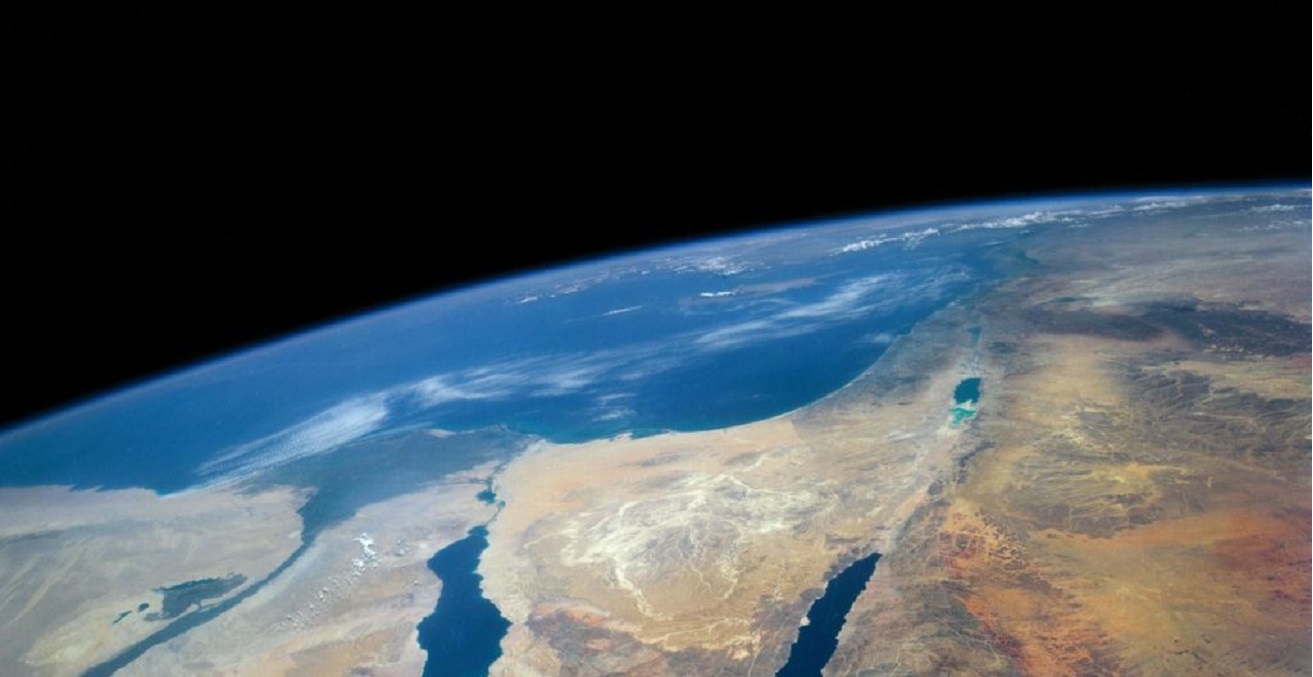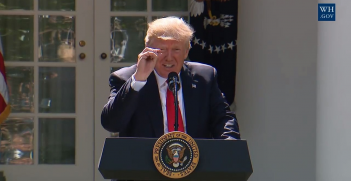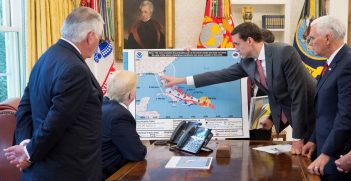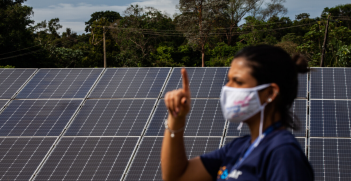Scientists Outline the Destruction of the Mediterranean

The Mediterranean is sinking into disaster faster than most care to realise. Before long, and without sustained effort to bring temperatures down to a reasonable level, the region and the world will begin to observe and experience its undeniable impact.
For many of us watching the curious and compelling spectacle of King Charles III being crowned in Westminster Abbey, the immediate challenge was to look for signals as to how his governance will differ from that of his mother, Queen Elizabeth II. In particular, how will the 74-year-old govern? For half a century he has vigorously espoused the need for environmental and wildlife protection, bio-diversity, and climate change action. He has helped tens of thousands of disadvantaged young people through the Prince’s Trust. It is plain that he will crack on with all of these causes.
The prevailing mood in Britain was particularly well captured in Rupert Murdoch’s flagship newspaper, The Times, in a brilliant column written by Trevor Phillips headlined, “Monarchy blooms while the politicians wilt.” Phillips noted that the King’s overriding mission was to unite a diverse and divided nation beyond that created by Britain’s political parties, one “characterised by scandal, name-calling and incompetence.” Just two days before the Coronation, the ruling Tory Party were mauled in nationwide local government elections, with Labour becoming the largest party and claiming to be on course to win a general election next year.
There seems little doubt that the King, well guided by Justin Welby, the Archbishop of Canterbury who backed Charles’ decision to involve all the faiths in the Coronation ceremony, is closer to public opinion than many politicians. This became very clear to me earlier last week when I was invited to participate in a symposium at Clare Hall, University of Cambridge, examining the disaster that is now facing the Mediterranean Sea. The ancient lands that represent such a huge part of mankind’s history on earth have suffered so many deprivations and disasters in recent years that it is no longer an exaggeration to say that the Med, arguably the world’s most famous and most visited tourist destination, is dying.
Encased by 21 countries along its littoral, Mediterranean peoples have been fighting pollution, over-population, and urban blight for decades, but only recently has it become apparent that the climate emergency has become a very real and immediate threat not just to the blue waters of the Med but also to the lives of the 500 million people who live there. Without change, several of Europe’s and Africa’s most important food bowls and energy sources look set to be wiped out.
The author and academic John Cornwell, who is director of the Science & Human Dimension Project at Jesus College Cambridge, had gathered a multi-disciplinary group of experts from across Europe to explore the extent and urgency of the problem and stimulate wider debate on practical solutions. There were oceanographers and marine geographers, climate experts and public policy gurus, historians and geopolitical analysts, diplomats and journalists.
As I write this column, I can almost hear some of my loyal readers saying, “He is writing about climate change again.” But this is really important. Scientists argue that the Mediterranean today is a microcosm of the planet’s environmental future – the “canary in the climate mine.” As Nick Hopton, former UK ambassador to Libya, Iran, Qatar, and Yemen insisted: “It is hard to say anything will be a bigger threat [to world stability] than climate.” He added that climate wars are already happening at the local level and are “likely to occur in the Mediterranean region, and probably sooner rather than later.” The 2020 1st Report on Climate and Environmental Change in the Mediterranean Basin declared the region the “main hotspot in the world.”
Why does this matter? The future of the Med is a global issue; it is being discussed in the Shanghai Cooperation Organisation and theWorld Economic Forum, and is the location of 41 World Heritage Sites on the Adriatic coast, in Croatia, Lebanon and elsewhere – all of which are at risk of destruction by 2100. Moreover, many Australians trace their roots to the Mediterranean, migrating in significant numbers during the twentieth century from Italy, Greece, Lebanon, and Turkey. The same is true of the United States and Canada.
The Mediterranean is a virtually enclosed sea at the juncture of three continents. It has a very small tidal range, so increases in sea level are evident at an earlier stage than elsewhere. It is dominated by rocky coasts which don’t offer a sediment offset for rising water levels. The natural migration of salt flats and beaches is often stopped by lack of space caused by cliffs or urban development and infrastructure. Furthermore, the Mediterranean landscape has been degraded by centuries of exploitation and is very vulnerable.
Now for some stark facts, first on warming. The region is warming up to 20 percent faster than the global average. “Today, we are warmer than at any point in the last 2,000 years, including in the Roman warm period,” Prof. Neil Roberts, Emeritus Professor of Geography at the University of Plymouth, told delegates. By 2040 temperatures are expected to increase by 2.2°C, compared with pre-industrial levels. Already the surface of the sea has warmed 0.5°C and could warm by 3°C by 2100. These temperature changes, with the concurrent increase in salinity of the sea, will have a massive impact on biodiversity, which cannot adapt rapidly enough to survive. Sixteen percent of areas that have a Mediterranean climate – warm dry summers and cool wet winters – will be lost and there will be a doubling of arid areas experiencing up to seven months continuous drought in the year.
Water poverty will be endemic. Some 250 million of the peoples of the Mediterranean basin are projected to be “water poor” within 20 years. Models suggest a 4 percent decrease in rainfall for every 1°C of warming. Soil moisture will decline slowly and over a longer time, but will be even more persistent, bringing huge agricultural losses. Yields of crops such as wheat and chickpeas would be halved under drought conditions. In many areas, agriculture will only be feasible with irrigation, usually from groundwater and fossil aquifers – the latter not a renewable resource.
As Professor Tom Spencer, Director of the Cambridge Coastal Research Unit at Magdalene College, said “The Mediterranean is a hot spot of environmental risk.” But what are the solutions? There is no single organisation, regional or international, capable or with the capacity to take on the Med’s climate crisis. The European Union is focussed on major, immediate problems including migration across the Mediterranean and the far-reaching impacts of the Russian invasion of Ukraine. Migrants are flooding into Europe from war zones, including Ukraine, Syria, and Sudan. Their numbers are massively increased by those seeking refuge from economically-threatened north African countries now in the grip of drought. The EU is under pressure from frontline states, Italy and Greece, for more financial and social help to deal with the migrant issue.
The catalogue of environmental issues is daunting. The problems include mass tourism in the region, now running at 300 million a year, with cruise liners seen as one of the many problems. Others include carbon emissions, plastics and petrochemical pollution, over-fishing, and deforestation. The knock-on consequences are already evident in unseasonal intensive heatwaves, proliferating wildfires, water contamination, marine pollution, and flash floods.
In his concluding remarks, author and historian Christopher de Bellaigue told delegates that “What we lack is urgency, [in particular] the perfect blend of hope and urgency.” That’s a sentiment King Charles III has held for almost 50 years.
Colin Chapman FAIIA is a writer, broadcaster, public speaker, who specialises in geopolitics, international economics, and global media issues. He is a former president of AIIA NSW and was appointed a fellow of the AIIA in 2017. Colin is editor at large with Australian Outlook.
This article is published under a Creative Commons License and may be republished with attribution.





